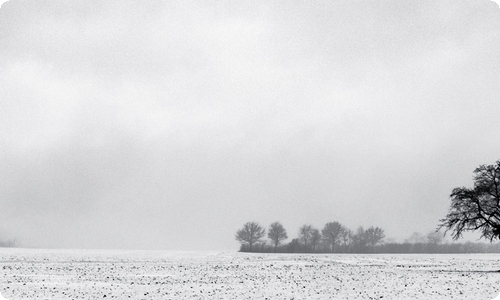苏教版八年级上册英语第五单元知识点

[说明]苏教版八年级上册英语第五单元知识点为的会员投稿推荐,但愿对你的学习工作带来帮助。
作为知识分子,不应该也不会排斥团队协作和团队精神,但他在团队里,是有一个“独立之人格,自由之思想”的人。下面小编给大家分享一些苏教版八年级上册英语第五单元知识,希望能够帮助大家,欢迎阅读!
苏教版八年级上册英语第五单元知识1
Section A 知识提纲l 词形转换
1.stand
v.忍受,站立pt .stood2.discussion
n.讨论,商量→v.discuss3.educational
adj.教育的,有教育意义的→n.education 教育4.hope
v.希望→adj.hopeful 有希望的l 短语
1.talk
show 访谈节目2.talent
show 才艺展示3.soap
opera 肥皂剧4.game
show 游戏类节目5.sports
show 体育节目6.find
out 查明,弄清7.have
a discussion 讨论8.around
the world = all over the world 全世界l 词法
1.show
? n.展览,表演,节目onshow 展览,陈列?v.出示,把……给……看showsb.sth.=show sth.to sb.
Please show me your ticket =Please show your ticket to me
请出示你的票。
? show sb.around a place 领某人参观某地
You’d better show her around thefactory .
你最好带领她参观一下这家工厂。
2.mind
? n.想法,意见,主意changeone’s mind 改变主意? v.介意,后跟名词、代词、动名词或从句作宾语,多用于疑问
句、否定句或条件句中。
Do you mind opening the door ? 请打开门好吗/
? Would you mind ( one’s ) doingsth .? 你介意(某人)做某事吗?
其回答表示同意(不介意)一般用:
Of course not ./ Notat all / Certainly not .不介意
其回答表示不同意(介意)一般用;
I’m sorry , but … / You’d better not .
3.stand
v.? 站立,起立→pt.stood Stand up , please .请起立。? 忍受standsb./ sth./ doing sth.
尤用于否定句和疑问句,常与can / can’t 连用。
I can’t stand youanymore .我再也无法忍受你了。
〖典例〗—I can’t stand computer games for a long time
—Me , either .A toplay B play C playing
4.plan
? n.计划,打算makeplans 制定计划theplan for…,……的计划? v.计划,打算,后跟名词或动名词作宾语。
Tom planned to visit hisgrandparents in London .
汤姆计划去伦敦看望他的祖父母。
5.hope
? n.希望→ adj.hopeful 有希望的。? v.希望hopeto do sth.希望做某事hope + that 从句
She hopes to win the gold medal.她希望赢得金牌。
wish v.希望wishto do sth./ wish sb.to do sth./ wish + that 从句
6.go
on 进行,发生 ? go on doing sth.指不停地继续做同一事情,亦可指暂停后的继续。
? go on to do sth.表示做完一件事之后紧接着又去
做另一件事。
7.discussion
n.讨论,商量? → v.discuss 讨论,商量
? have a discussionabout sth .就某事展开讨论。
have a discussionwith sb.和某人讨论。
We have a discussion aboutpollution .我们就污染展开讨论。
We have a discussion withforeign teachers .我们和外教展开讨论。
8.happen
vi.发生,出现? 表示“某人发生了什么事(常指不好的事)”sth.happens to sb.
You’d better wait and see whatwill happen to him .
你最好等等看他会发生什么事。
? 表示“某地/某时发生了什么事”sth happened + 地点/时间
An accident happened in thatstreet .那条街上发生了一起事故。
? happen to do sth .碰巧做某事
I happened to meet my old friendyesterday .
我昨天碰巧遇见了我的老朋友。
? happen 指具体客观事件发生,有偶然性,未能预见。
take place 发生,尤指根据安排或计划发生。
When will the wedding take place? 婚礼什么时候举行?
9.expect
v.预料,期待,常含有“知道某事即将发生”之意。? expect + n./pron.预计……可能发生;期待某人或某物。
? expect to do sth.期待做某事
? expect sb.to do sth.期望某人做某事
? expect + that 从句预计/料想……
I expect (meet ) you again .
10.follow
v.跟随,追随 ? adj.following 下列的,接着的? follow sb./sth.跟随某人/ 某物
? follow sb.to do sth.跟随某人做某事
11.What
doyou think of …?= How do you like …? 你认为……怎么样?常用来询问对方的意见或看法,对此类句型的回答通常用:
? 描述性的形容词 ? I like … very much/ a lot / a little
? I don’t like ? I can’t stand ? I don’t mind
12.joke
n.笑话,玩笑telljokes 讲笑话playjokes on sb.同某人开玩笑苏教版八年级上册英语第五单元知识2
Section B 知识提纲
一、词型转换
1.mean
v.意思是 → pt.meant → n.meaning 意思meaning n.→ adj.meaningful 有意义的→opp.meaningless 毫无意义的
2.act
v.表演,扮演→n.action 行动,actor 男演员actress女演员3.become
v.→ pt.became 4.richadj.富有的→opp.poor 贫穷的5.succeed
v.成功→ n.success 成功→adj.successful获得成功的6.luck
n.运气→ adj.lucky 幸运的→opp.unlucky 不幸的,不吉利的→ adv.luckily 幸运地→opp.unluckily 不幸地
7.lose
v.失去,丢失→ pt.lost二、短语
1.action
movie动作影片2.be
ready to 准备好(做某事),愿意(做某事)3.dress
up 装扮,乔装打扮4.take
one’s place 代替,替换5.do
a good job 干得好6.come
out 出版,发行7.try
one’s best 尽最大努力三、词法
1.famousadj.=
well known 著名的,出名的? be famous for 因……而著名
? be famousas 作为……而著名
Lang Lang is famous for playingthe piano .郎朗因弹钢琴出名。
Lu Xun is famous as a writer .鲁迅作为一名作家而著名。
2.succeed
v.成功 ? n..success adj.successful adv.successfully? succeed in doing sth.成功地做某事
At last he succeeded in solvingthe problem .
最后他成功地解决了这个问题。
3.reason
n.原因,理由reasonfor sth./ doing sth.某事/做某事的原因Give me the reason for helpinghim .给我你帮他的原因。
4.be
ready for sth 为……做好准备be ready to do sth .准备好做某事/ 愿意做某事
5.lose
v.失去,丢失 ? pt.lost 丢失的getlost= lose one’s way 迷路6.try
v.尝试,设法tryto do sth .设法做某事try doing sth .尝试做某事try one’s best 尽某人最大努力tryon 试穿havea try 试一试
四、语法——动词不定式作宾语
? 动词不定式的肯定式为:to+ 动词原形
? 动词不定式的否定式为:notto + 动词原形
? 一些动词(短语)后常跟动词不定式作宾语,常见的这类动词是
表示打算或希望的。如:wouldlike , want , wish , hope , decide ,
plan , expect 等。I planned to goshopping last night .
苏教版八年级上册英语第五单元知识3
【重点语法】
形容词比较级和最高级规则变化:
① 多数单音节形容词 = 词尾加 er 或 est
long tall clean长的高的干净的longer taller cleaner较长的较高的较干净的longest tallestcleanest最长的最高的最干净的② 以e结尾的单音节形容词-------- 词尾加 r 或 stlargelate nice大的晚的好的largerlater nicer较大的 较晚的 较好的largest latest nicest 最大的 最晚的 最好的③以重读闭音节结尾,且结尾只有一个辅音字母的形容词-------双写这个辅音字母,再加er或 estbig hot thin大的热的瘦的bigger hotterthinner较大的 较热的 较瘦的biggest hottest thinnest最大的 最热的 最瘦的④ 以“辅音字母 +y”结尾的形容词---------- 变y为i,再加er或 esteasybusyangry容易的 繁忙的 生气的easier busierangrier较容易的较忙的 较生气的easiest busiest angriest最容易的最忙的 最生气的⑤ 两个或两个以上音节的形容词--------more/most + 形容词原级beautifulimportant美丽的 重要的more beautifulmore important较美的较重要的most beautifulmost important最美的 最重要的
不规则变化:good/well---better---best, bad/badly---worse---worst,
many/much---more---most, little---less---least,
far---farther/further---farthest/futhest
形容词原级,比较级和最高的用法:
1 当两者进行比较时,通常用形容词的比较级形式,其后用than引出比较的对象。形容词比较级前常用much,alot,even等修饰。‘比较级+and+比较级’表示‘越来越……’; ‘the+比较级,the+比较级’表示‘越……,越……’。
2当三者或三者以上的人或事物进行比较,表示‘最’的意思时,用形容词最高级形式,且最高级前面必须要有定冠词the,在使用形容词最高级时,后面通常接‘of.../in…’,表示比较的范围。当比较的范围与主语是同一类人或物,或属于同一概念是,要用介词of引导的短语;当比较的范围与主语不是同一类人或物,强调在某一范围或场所内进行比较时,要用介词in引导的短语。

文档为doc格式
最新文章
- 1做一名好老师心得体会多篇(全文共12016字)
- 2掘进党支部党建工作述职报告(全文共2249字)
- 3个人委托书(推荐6篇)(全文共1631字)
- 4人力资源管理专业毕业生自荐书(精选多篇)(全文共3058字)
- 5落实全面从严治党、党风廉政建设和反腐败工作主体责任清单(全文共5342字)
- 6新版香港旅游导游词(全文共3037字)
- 7银行党员干部个人检视剖析材料(全文共1182字)
- 8做人要善良话题初中作文(全文共3938字)
- 9写字楼调研报告(全文共8719字)
- 10商务局局长的述职报告分析(全文共15989字)
- 11公共卫生工作计划(全文共14947字)
- 12物理学应届毕业生的求职信(全文共4392字)
- 13新一轮党政机构改革进展情况工作总结(全文共1478字)
- 14关于父母课堂读书心得体会(全文共2911字)
- 15通报写作要点(全文共591字)
- 162021儒林外史读后感心得启示(全文共3584字)
- 17XX中心积极开展 《XX省公共信用信息条例》宣传工作(全文共516字)
- 182021年漳州重阳节的习俗(全文共1464字)
猜你喜欢
- 1幼儿园安全规范工作总结范本多篇(全文共11541字)
- 2常用优美的早安心语语录(全文共5517字)
- 3银行办公室员工个人工作总结(全文共1212字)
- 4集体林权改革调度会发言稿(全文共11246字)
- 5财务部经理述职报告(全文共1054字)
- 6企业文员第二季度2020工作计划(全文共3284字)
- 7青春在战疫中绽放首场全国宣讲报告会观后感心得多篇(全文共3915字)
- 8“党在我心中”“快乐你懂得”主题班会策划书(全文共3239字)
- 9用心诠释爱《生命与使命同行》读后感(全文共818字)
- 10行政岗位述职报告(全文共14724字)
- 11【实用】教师述职范文集锦7篇(全文共9265字)
- 12少先队大队长竞选稿(共5篇)(全文共3593字)
- 13个人述职范文集锦(全文共4696字)
- 14财务管理实习总结(合集15篇)(全文共28878字)
- 152020年度民主生活会总结(全文共1453字)
- 16寒假社会实践——参加招聘会的心得体会(精选多篇)(全文共7158字)



